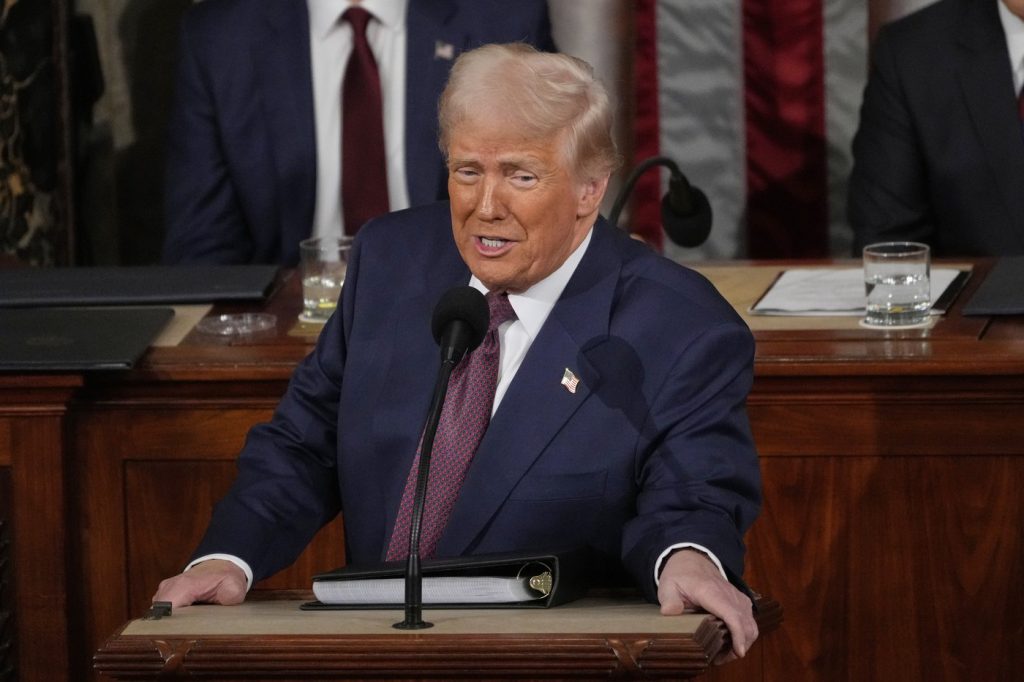In Washington, the architects behind the Canada-U.S.-Mexico Agreement (CUSMA) have voiced strong concerns about the ramifications of Donald Trump’s trade war, asserting that his recent actions have effectively undermined the trade pact. Canada’s chief negotiator, Steve Verheul, and Mexico’s chief negotiator, Ken Smith Ramos, indicated that the imposition of heavy tariffs has severely curtailed the agreement’s value, rendering it nearly worthless for Canada and Mexico.
On March 5, 2025, President Trump enacted sweeping tariffs, imposing a 25 percent levy on various imports from Canada and Mexico, with a notably lower rate of 10 percent applied to Canadian energy products. Verheul expressed his dismay, stating, “With 25 percent tariffs, it blows a complete hole in the trade agreement,” further explaining that it places Canada and Mexico in a disadvantaged position compared to other nations.
In retaliation, Canada responded promptly, imposing tariffs on $30 billion worth of U.S. goods. Additionally, Ottawa is set to roll out another $125 billion in tariffs after a 21-day period. Meanwhile, Mexican President Claudia Sheinbaum stated her government would unveil targeted duties and further measures, emphasizing that the tariffs lack justification and would negatively impact both nations.
Trump invoked the International Economic Emergency Powers Act to initiate these tariffs, citing an emergency related to fentanyl at the northern border. However, data from U.S. Customs and Border Patrol indicates a minimal flow of fentanyl from Canada, with only 13.6 grams intercepted in January 2025. Verheul criticized the rationale behind the tariffs, labeling it unnecessary.
Prime Minister Justin Trudeau condemned Trump’s actions, suggesting that the president aims to destabilize the Canadian economy to facilitate annexation. Trudeau has announced intentions to challenge the tariffs through the World Trade Organization and via CUSMA’s provisions.
Verheul and Ramos played pivotal roles in negotiating CUSMA during Trump’s first administration, which Trump had previously hailed as the “best agreement.” In light of the current tensions, they have joined forces with Kevin Brady, a former House committee chairman, to form the Coalition for North American Trade, seeking to enhance the economic and security collaboration outlined in the agreement that they argue is now threatened by the ongoing tariff disputes.
Trump's tariffs have already caused significant unrest in financial markets, tested the resilience of the agreement, and prompted further measures, including a blanket 25 percent tariff on all steel and aluminum imports announced earlier. The President's executive order states that reciprocal tariffs will be effective starting April 2, targeting products such as automobiles, copper, lumber, and agricultural goods.
In a recent development, Trump issued a one-month exemption for vehicles crossing through CUSMA after discussions with major automakers like Stellantis, Ford, and General Motors. Ramos highlighted that with escalating tariffs, it becomes increasingly difficult for trade with the U.S. to remain viable, commenting that tariffs stacking up to 50 percent equate to logical impossibilities in trade dynamics.
Looking forward, the scheduled review of CUSMA in 2026 could yield several outcomes—countries may propose amendments, tweak the agreement, or one country might withdraw entirely. The likelihood of retaining the existing agreement amid current geopolitical tensions, however, appears minimal, as Verheul noted that Canadians perceive the U.S. as an unreliable trading partner.
Brady concluded that the future of U.S. relations with Canada and Mexico is uncertain, despite both nations remaining key customers for American products. The collaborative agreement has been instrumental in reinforcing these ties. The continued existence or expiration of this agreement opens the possibility of profound consequences for millions of American workers and their families.










